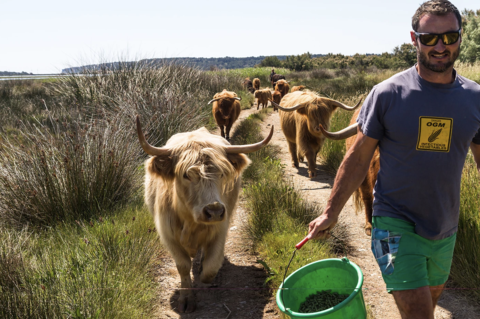Chemins de Bassac
Their arrival indeed marks a whole new era for this respectable old domain (established in the late 19th century, practicing organic since the 1980s): the adventurous one where no enological preparations or additives, save for a little bit of sulfur, are used. It’s not an easy path, Bruno admits, especially for someone who’s still new to it, “but I feel we can and should trust our grapes and the good vineyard work that’s behind them. And…” he grows more solemn, “I was really traumatized by the migraines, suffering that only went away once I stopped eating and drinking industrialized produce. And if I don’t want additives for myself, I don’t want them for anybody.” Luckily for them, their neighbor just across the road is one Jean-Francois Coutelou, a long-term pioneer of natural winemaking in the area. “There’s no such thing as making wine alone,” Bruno nods.





















